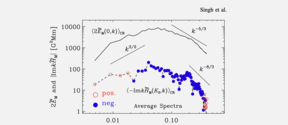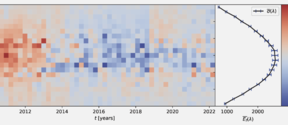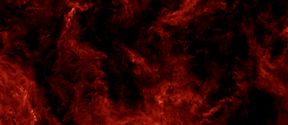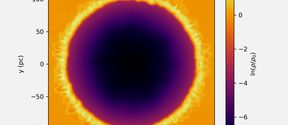High-performance computing Lab (HPCLab)
Our research group develops and utilises high-performance and data intensive computing (HPC) methods and applications for heterogeneous NUMA-architectures.
Our spearhead area is astroinformatics, namely methods and tools for simulating and analysing data from complex (astro)physical systems, such as turbulent fluids, the Sun, and interstellar matter in galaxies. The developed methods include simulation tools accelerated with graphics processing units, and data-analysis tools employing machine learning. Our current projects aim at understanding, predicting, and mitigating the harmful effects from solar magnetic activity (ERC consolidator grant UniSDyn, ERC proof-of-concept grant SYCOS, Inno4Scale project NEOSC).
Our spearhead area is astroinformatics, namely methods and tools for simulating and analysing data from complex (astro)physical systems, such as turbulent fluids, the Sun, and interstellar matter in galaxies. The developed methods include simulation tools accelerated with graphics processing units, and data-analysis tools employing machine learning. Our current projects aim at understanding, predicting, and mitigating the harmful effects from solar magnetic activity (ERC consolidator grant UniSDyn, ERC proof-of-concept grant SYCOS, Inno4Scale project NEOSC).

News
HPCLab research group news

Evidence of turbulent dynamo action in the Sun
Astroinformatics research group has determined magnetic helicity spectrum from the solar surface observations using the recently developed two-scale formalism.
Surface gravity oscillation mode shows remarkable solar cycle dependence
12 years of satellite data was used to reveal an enigmatic behaviour of the surface-gravity wave energy contained in the most quiet regions on solar surface.
LUMI-G pilot
VISSI-project was selected as LUMI-G pilot
Dust destruction in Supernova blast waves
A supernova explosion blasts hot supersonic plasma, destroying more interstellar dust in its path than fits current theory or observations of dust abundances in early galaxies.People

Latest publications
COSMOS Spectroscopic Redshift Compilation (First Data Release) : 488,000 Redshifts Encompassing Two Decades of Spectroscopy
Ali Ahmad Khostovan, Jeyhan S. Kartaltepe, Mara Salvato, Olivier Ilbert, Caitlin M. Casey, Hiddo Algera, Jacqueline Antwi-Danso, Andrew Battisti, Malte Brinch, Marcella Brusa, Antonello Calabro, Peter L. Capak, Nima Chartab, Olivia R. Cooper, Isa G. Cox, Behnam Darvish, Nicole E. Drakos, Andreas L. Faisst, Matthew R. George, Ghassem Gozaliasl, Santosh Harish, Gunther Hasinger, Hossein Hatamnia, Angela Iovino, Shuowen Jin, Daichi Kashino, Anton M. Koekemoer, Ronaldo Laishram, Khee-Gan Lee, Jitrapon Lertprasertpong, Simon J. Lilly, Daizhong Liu, Daniel C. Masters, Bahram Mobasher, Tohru Nagao, Masato Onodera, Yingjie Peng, David B. Sanders, Ryan L. Sanders, Zahra Sattari, Nick Scoville, Ekta A. Shah, John D. Silverman, Nao Suzuki, Sina Taamoli, Masayuki Tanaka, Lidia A. M. Tasca, Sune Toft, Greta Toni, Benny Trakhtenbrot, Jonathan R. Trump, Mattia Vaccari, Francesco Valentino, Brittany N. Vanderhoof, John R. Weaver, Min S. Yun, Jorge A. Zavala
2026
Astrophysical Journal Supplement Series
Mission concept for SURROUND: Operational space weather detection and tracking using small spacecraft
Alejandro Macario-Rojas, Dale Weigt, Luis Alberto Cañizares, Shane A. Maloney, Sophie A. Murray, Peter T. Gallagher, Nicholas Crisp, Ciara McGrath
2026
Acta Astronautica
Anticipating additional exoplanets in multi-planetary systems
M. Mousavi-Sadr, G. Gozaliasl, D. M. Jassur
2026
Proceedings of the International Astronomical Union
Refining the exoplanet mass-radius relation using machine learning
M. Mousavi-Sadr, G. Gozaliasl, D. M. Jassur
2026
Proceedings of the International Astronomical Union
An ultra-high-resolution map of (dark) matter
Diana Scognamiglio, Gavin Leroy, David Harvey, Richard Massey, Jason Rhodes, Hollis B. Akins, Malte Brinch, Edward Berman, Caitlin M. Casey, Nicole E. Drakos, Andreas L. Faisst, Maximilien Franco, Leo W.H. Fung, Ghassem Gozaliasl, Qiuhan He, Hossein Hatamnia, Eric Huff, Natalie B. Hogg, Olivier Ilbert, Jeyhan S. Kartaltepe, Anton M. Koekemoer, Shouwen Jin, Erini Lambrides, Alexie Leauthaud, Zane D. Lentz, Daizhong Liu, Guillaume Mahler, Claudia Maraston, Crystal L. Martin, Jacqueline McCleary, James Nightingale, Bahram Mobasher, Louise Paquereau, Sandrine Pires, Brant E. Robertson, David B. Sanders, Claudia Scarlata, Marko Shuntov, Greta Toni, Maximilian von Wietersheim-Kramsta, John R. Weaver
2026
Nature Astronomy
Euclid preparation LXXIII. Spatially resolved stellar populations of local galaxies with Euclid : A proof of concept using synthetic images with the TNG50 simulation
C. Tortora, M. Baes, A. Nersesian, I. Kovačić, M. Bolzonella, A. Lançon, L. Bisigello, F. Annibali, M. N. Bremer, D. Carollo, C. J. Conselice, A. Enia, A. M.N. Ferguson, A. Ferré-Mateu, L. K. Hunt, E. Iodice, J. H. Knapen, A. Iovino, F. R. Marleau, R. F. Peletier, R. Ragusa, M. Rejkuba, A. S.G. Robotham, J. Román, T. Saifollahi, P. Salucci, M. Scodeggio, M. Siudek, A. van der Wel, K. Voggel, B. Altieri, S. Andreon, C. Baccigalupi, M. Baldi, S. Bardelli, A. Biviano, A. Bonchi, D. Bonino, E. Branchini, M. Brescia, J. Brinchmann, S. M. Niemi, P. Schneider, Y. Wang, M. Calabrese, G. Gozaliasl, A. Hall, J. Hjorth, S. Lee
2025
Astronomy & Astrophysics
COSMOS-Web: Estimating Physical Parameters of Galaxies Using Self-Organizing Maps
Fatemeh Abedini, Ghassem Gozaliasl, Akram Hasani Zonoozi, Atousa Kalantari, Maarit Korpi-Lagg, Olivier Ilbert, Hollis Akins, Natalie Allen, Rafael Arango-Toro, Caitlin Casey, Nicole Drakos, Andreas Faisst, Carter Flayhart, Maximilien Franco, Hosein Haghi, Santosh Harish, Hossein Hatamnia, Jeyhan Kartaltepe, Ali Khostovan, Anton Koekemoer, Vasily Kokorev, Rebecca Larson, Gavin Leroy, Daizhong Liu, Henry McCracken, Jed McKinney, Nicolas McMahon, Wilfried Mercier, Bahram Mobasher, Sophie Newman, Louise Paquereau, Jason Rhodes, Brant Robertson, Marko Shuntov, Sina Taamoli, Sune Toft, Francesco Valentino, Eleni Vardoulaki, John Weaver
2025
arXiv.org
COSMOS-web : The Overabundance and Physical Nature of “Little Red Dots”—Implications for Early Galaxy and SMBH Assembly
Hollis B. Akins, Caitlin M. Casey, Erini Lambrides, Natalie Allen, Irham T. Andika, Malte Brinch, Jaclyn B. Champagne, Olivia Cooper, Xuheng Ding, Nicole E. Drakos, Andreas Faisst, Steven L. Finkelstein, Maximilien Franco, Seiji Fujimoto, Fabrizio Gentile, Steven Gillman, Ghassem Gozaliasl, Santosh Harish, Christopher C. Hayward, Michaela Hirschmann, Olivier Ilbert, Jeyhan S. Kartaltepe, Dale D. Kocevski, Anton M. Koekemoer, Vasily Kokorev, Daizhong Liu, Arianna S. Long, Henry Joy McCracken, Jed McKinney, Masafusa Onoue, Louise Paquereau, Alvio Renzini, Jason Rhodes, Brant E. Robertson, Marko Shuntov, John D. Silverman, Takumi S. Tanaka, Sune Toft, Benny Trakhtenbrot, Francesco Valentino, Jorge Zavala
2025
Astrophysical Journal
Machine Learning Classification of COSMOS2020 Galaxies : Quiescent versus Star-forming
Vahid Asadi, Nima Chartab, Akram Hasani Zonoozi, Hosein Haghi, Ghassem Gozaliasl, Aryana Haghjoo, Bahram Mobasher
2025
Astrophysical Journal
Euclid preparation LXXIV. Euclidised observations of Hubble Frontier Fields and CLASH galaxy clusters
P. Bergamini, M. Meneghetti, G. Angora, L. Bazzanini, P. Rosati, C. Grillo, M. Lombardi, D. Abriola, A. Mercurio, F. Calura, G. Despali, J. M. Diego, R. Gavazzi, P. Hudelot, L. Leuzzi, G. Mahler, E. Merlin, C. Scarlata, N. Aghanim, B. Altieri, A. Amara, S. Andreon, N. Auricchio, C. Baccigalupi, M. Baldi, S. Bardelli, R. Bender, C. Bodendorf, D. Bonino, E. Branchini, M. Brescia, J. Brinchmann, S. Camera, V. Capobianco, C. Carbone, J. Carretero, S. Casas, F. J. Castander, M. Castellano, G. Castignani, S. Cavuoti, A. Cimatti, S. M. Niemi, A. G. Sánchez, P. Schneider, Y. Wang, M. Calabrese, G. Gozaliasl, A. Hall, J. Hjorth
2025
Astronomy & Astrophysics






